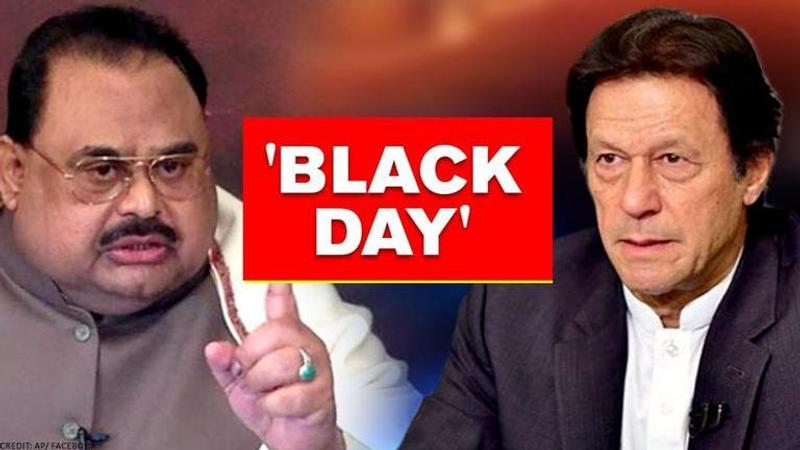Published 18:49 IST, August 12th 2020
Protesting atrocities, Altaf Hussain's MQM to observe Pak Independence Day as 'Black Day'
In an embarrassment for the Imran Khan-led government, prominent political party MQM announced that it shall observe Pakistan's Independence Day as 'Black Day'.

In a big embarrassment for the Imran Khan-led government, Muttahida Qaumi Movement announced that it shall observe Pakistan's Independence Day as 'Black Day'. This step is aimed at highlighting Pakistan's brutality against Mohajirs, Sindhis, Balochs, Pashtuns, other oppressed ethnicities and religious minorities. MQM, Pakistan's prominent political party formed in 1984, will organise car rallies in the UK, the USA, Canada, Germany, Australia and its other overseas units on August 14 as a mark of protest.
Founded by Altaf Hussain, MQM has constituted different committees for the arrangements of 'Black Day'. According to the overseas chapters of the party, the Pakistan Army, Rangers, Frontier Constabulary and other security forces are persecuting oppressed ethnicities and religious minorities. They alleged that extra-judicial killings, illegal arrests, detentions, enforced disappearances and other human rights violations had become a "daily routine" in Pakistan.
MQM and the Altaf Hussain phenomenon
Born in a middle-class family in September 1953, Altaf Hussain's family moved to Karachi from Uttar Pradesh at the time of partition. This group comprising millions of Urdu-speaking people is known as the ‘Mohajir community’ in Pakistan. When he was a pharmacy student, he became active in the student politics scene. As the Mohajir community began losing its initial importance after the 1970s, it began to express an increasing sense of insecurity. This sentiment was effectively tapped by Hussain. In 1984, he formed MQM which became a major political force in 1988 by becoming the third-largest party in the national legislature.
However, Hussain faced a major setback after the Pakistani Army ordered a major crackdown on MQM in the early 1990s. Accused in a murder case, Hussain fled Pakistan and requested asylum from the United Kingdom. Years later, he gained citizenship of the UK. Nevertheless, he would address huge rallies in Pakistan via telephone and continued to have a major influence over the politics of Karachi. In 2016, owing to the alleged pressure from the Pakistani military establishment, MQM was forced to publicly sever its connection from Hussain. But an MQM faction headed by him continues to operate from abroad. With 7 seats, MQM is currently a part of the Pakistan government.
(With ANI inputs)
Updated 18:49 IST, August 12th 2020




